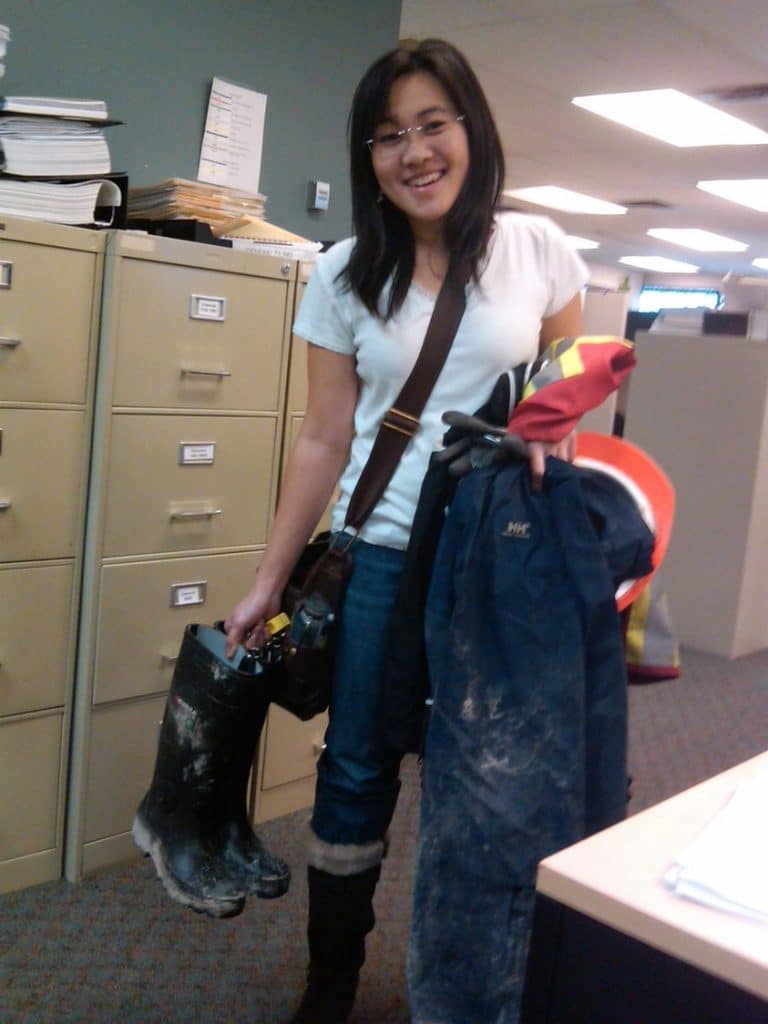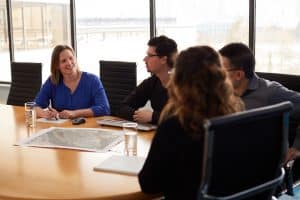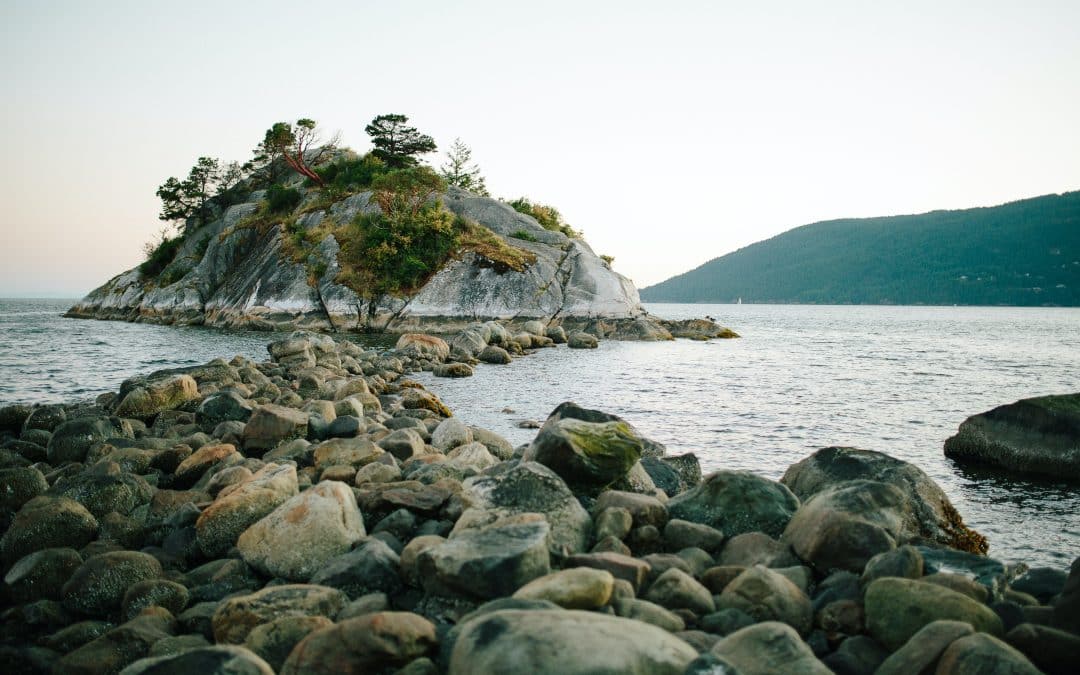In 2015, the General Assembly adopted a resolution to establish an annual International Day to recognize the critical role women and girls play in science and technology communities. In welcoming the efforts of the United Nations Educational, Scientific and Cultural Organization (UNESCO), the United Nations Entity for Gender Equality and the Empowerment of Women (UN Women), the International Telecommunication Union (ITU) and other relevant organizations that support and promote the access of women and girls and their participation in science, technology, engineering and mathematics education, training and research activities at all levels decided to proclaim 11 February of each year the International Day of Women and Girls in Science. (source: https://www.un.org/en/observances/women-and-girls-in-science-day/background)
This year, to honour the Women in Science at Keystone Environmental we interviewed four of our staff to get their feedback on their careers, the industry and what they would say to girls exploring a career path in science.
Antonia Gunardi, P.Eng. explored a career in Engineering because she always loved solving puzzles. Working through math equations, chemical reactions or physics problems were the real world puzzles to solve, which lead her to Civil and Environmental Engineering where she could apply these principles to real life situations.
Simone Mol, Ph.D., P.Chem, completed a double degree in Chemistry and Environmental Management, her passion for spending time out in nature made her realize she wanted to help protect it.
Stephanie Davis, Jr. Marine Biologist, knew she wanted to be a marine biologist the first time she saw the ocean at age 7. Biology allows her to explore the interconnectivity of ecosystems and how they make up the world we live in. Her astonishment by the beauty and majesty of the vast, sparkling expanse of water, and the life below it, has given her the opportunity to learn, grow and work to apply her knowledge to benefit the environments we live in.
Keree Orso, M.Sc., R.P. Bio, has always had a strong urge to figure out how things worked and how they were connected leading her down the path to study Environmental Science, Biology, Geology and Geography.
 “Initially, when I finished my undergraduate degree, I thought that I might stay in research. After spending a few years working in a laboratory, I wanted to be outside and moved to consulting where you have the opportunity to move from one project to the next and work with a variety of different clients helping them meet their goals.” says Simone. This sentiment is echoed by Stephanie who says, “My career has been different than what I expected. Life is no longer “get a degree, work a job, retire”. The evolving world has resulted in evolving career expectations. I didn’t walk out of my undergrad with a “forever job”. I think that the education gained by working several jobs over the years has helped me continue to grow professionally and personally.”
“Initially, when I finished my undergraduate degree, I thought that I might stay in research. After spending a few years working in a laboratory, I wanted to be outside and moved to consulting where you have the opportunity to move from one project to the next and work with a variety of different clients helping them meet their goals.” says Simone. This sentiment is echoed by Stephanie who says, “My career has been different than what I expected. Life is no longer “get a degree, work a job, retire”. The evolving world has resulted in evolving career expectations. I didn’t walk out of my undergrad with a “forever job”. I think that the education gained by working several jobs over the years has helped me continue to grow professionally and personally.”
While all of these women are not only in different but complementing fields, and various stages of their careers they all agreed that regardless of what industry you are in relationships are the key to success. “Being able to communicate your ideas to others, either verbally or written in a report or illustrated in a drawing is key to being a successful engineer. In most cases, human connection and relationships are as important as the basic knowledge of science,” says Antonia. “You never know when your paths may cross again – so relationships are key,” agrees Keree.
While the role of women and girls in science has and is continuously changing, it’s a bit of a “hard slog”, as Stephanie puts it. That doesn’t mean that there the changes that have already been showcased won’t continuously improve. “I think our work culture in these past couple of decades have been shifting to acknowledge that women are as competent as their counterpart. I also think some of the policy changes that we’ve seen recently, such as providing paternal leave instead of just maternal, encourage better equality between men and women in the industry.” says Antonia.

Keree agrees that over time there will be more opportunities for women in science, “My career did not exist when I was in elementary school and the types of careers you will be involved may not currently exist. So, obtain a diverse background in a range of subjects and be open to continuously evolving and learning as the future in science will be exciting.”
“Be aware that the path you end up on, or the career you end up with, isn’t always what you expected, that’s ok. Keep an open mind and make the best of where you are; don’t stress about finding “the right job”. Try to continue to work towards things that line up with your goals. Don’t sell your self short, ” says Stephanie.
For all those young girls and women out there, who are considering or are beginning their pursuit of a career in science, some advice:
“You can choose your own path. Find what you are passionate about. There is still a lot out there to discover. There are some amazing opportunities in the science field that will be incredibly rewarding,” says Simone.
“Stay curious and ask questions. Don’t let someone put out your light,” offers Stephanie.
“Try everything you are interested in as you never know what your true passion is or what you are best suited for until you try it,” advises Keree.
Antonia offers, “Do what you love to do and work hard. You have the potential and the world needs your point of view.”
These four women are only a small portion of the representation of women in science and business that help to make up the team at Keystone Environmental, and while we wish we could have interviewed everyone we hope that you will share these messages with the women and girls in your life who would like to explore a career in science.

